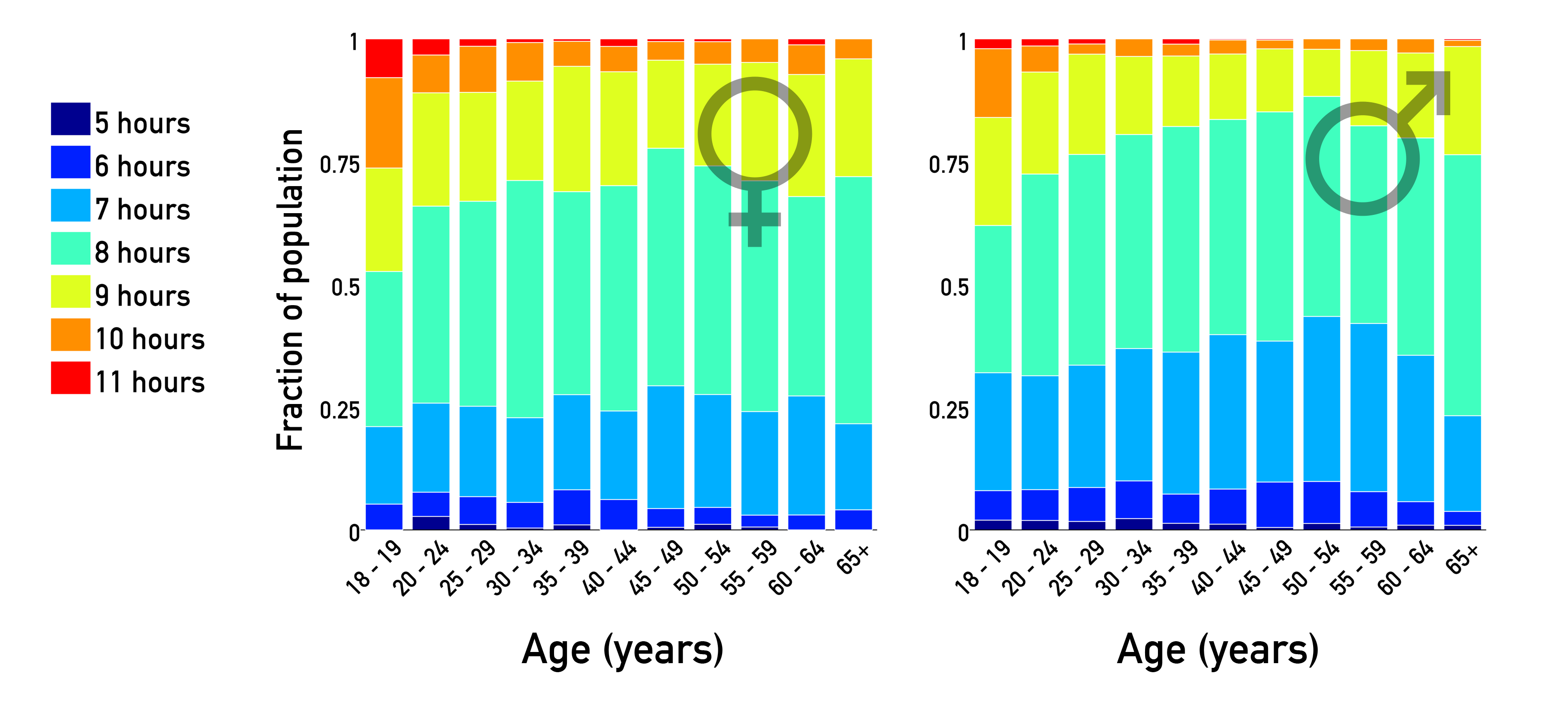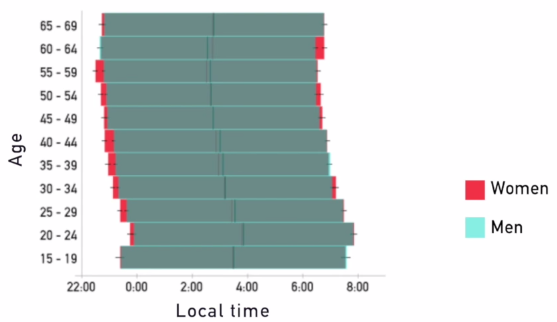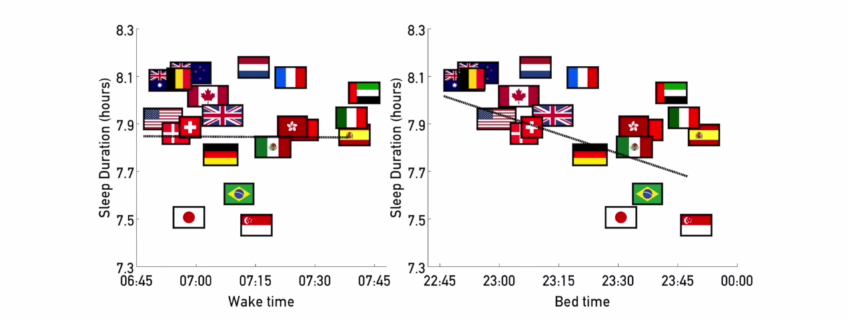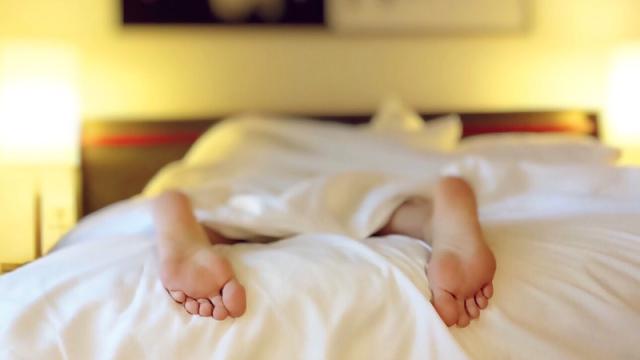The consequences of not getting enough sleep are evident to all of us — and yet we’re constantly staying up later than what our internal biological clocks are telling us. A new study shows the elusive nature of what’s to blame.
A new user data-driven study published in Scientific Advances is providing a fascinating glimpse into global sleep patterns, showing that the Dutch get about an hour more sleep each night than people in Singapore or Japan. The research also shows that women tend to get more sleep than men, and that the collective variability of our sleep patterns gets smaller as we age. What’s more, the study shows that social factors are preventing us from honouring our circadian rhythms, causing us to go to bed later than our internal biological clocks would like.
Back in 2014, a research team led by Daniel Forger of the University of Michigan released a free smartphone app called Entrain. His team has used the data collected by this app for the current study, which wasn’t strictly related to jet lag.
This program is designed to help travellers get over jet lag faster, and it does so by recommending lighting schedules. When installing the app, users decide whether or not they’d like to anonymously share their data with scientists. About eight per cent agreed. This allowed Forger’s team to collect about a year’s worth of sleep-related data, including a wide range of sunrises and sunsets and their relation to time spent awake or asleep.
Before we go any further it’s important to point out that the researchers were not dealing with a random sampling of people. Based on this method of data collection, the scientists were forced to deal with a rather narrow group of individuals. So, for example, everyone involved in the study uses this app to help them with their jet lag (so these folks travel a lot, and they’re clearly dealing with sleep issues), they’re technologically savvy and they’re cool about sharing their data (which excludes 92 per cent of all Entrain users).
That said, this research shows that mobile technology can be used to gather massive data sets and at very low cost. What’s more, the data jibed very well with theoretical predictions made by maths-driven models. Using these models, the researchers could predict how sunrise and sunset isolation affects sleep, which they compared to the user-submitted data. According to the theoretical predictions, later sunrises and sunsets should shift wake and bedtime later, while later sunsets should increase sleep duration. And indeed, these same trends appeared in the user data.
But — and this is a big but — the effects of sunlight are weaker around bedtime than the model’s predictions. This is important because bedtime is the single biggest driving factor behind why some countries seem to sleep more than others.
“We find that social pressures weaken and/or conceal biological drives in the evening, leading individuals to delay their bedtime and shorten their sleep,” wrote the researchers.
But it’s not immediately clear what these “social pressures” are. Perhaps it has something to do with long hours spent at work, which prevents people from wanting to hit the sack “too early”, even though it’s quite late. It’s also possible that various forms of entertainment are only available later in the evening (though in this era of on-demand television, that’s hard to believe). Further work in this area is desperately needed.

Image: Olivia Walch et al., 2016/Scientific Advances
The researchers also found that women tend to sleep more than men, about 30 minutes more on average. Women go to bed a bit earlier and wake up later, and this trend is most pronounced between the ages of 30 and 60. Also, middle-aged men get the least amount of sleep, often getting less than the recommended seven to eight hours. Interestingly, people who are regularly exposed to sunlight tend to go to sleep earlier, and they sleep longer than people who only get indoor light.

Image: Olivia Walch et al., 2016/Scientific Advances
Finally, age was shown to be a major factor in sleep trends. As people get older, they tend to schedule sleep earlier, which means habits change as we age. Sleep schedules were quite similar among those older than 55, compared to those younger than 30. The researchers believe this has something to do with a smaller window of circadian times where older folks can fall and stay asleep. This means we need to be more careful about light and how it affects our internal biological clocks as we get older.

Image: Olivia Walch et al., 2016/Scientific Advances
In terms of the global figures, people in Japan and Singapore get an average of seven hours and 24 minutes of sleep, while people in the Netherlands typically get about eight hours and 12 minutes. The time we choose to go to bed is the determining factor, as very few people extend their time of waking to compensate.
Ensuring that we get sufficient sleep is critical to our health. The US Centres for Disease Control and Prevention says that one in three adults in the US aren’t getting the recommended minimum of seven hours. Recent research found that 94 per cent of Australians do not get enough sleep. Sleep deprivation is a known risk factor for such things as obesity, diabetes, high blood pressure, heart disease, stroke and stress.
Image: Pixabay
